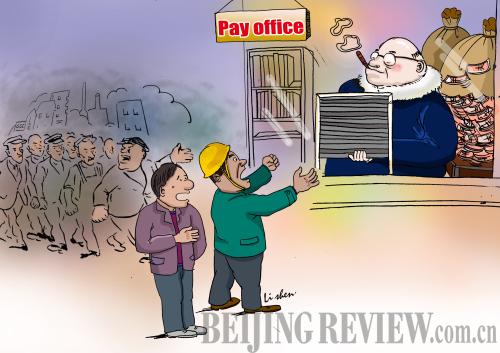| 
Employers defaulting on staff wages has become an all too common phenomenon in China, with such events a regular feature in media reports. The resulting confrontations between employees demanding wages owed and employers unwilling to pay up can have dire consequences. This was seen in an extreme case back in 2005. Wang Bin, a migrant worker, was beaten by his boss after asking for his due wages. Wang became so angry that he killed four people and was subsequently sentenced to death.
To address this issue and the negative effect it has on social order, an amendment to China's Criminal Law was submitted to the Standing Committee of the National People's Congress for approval on August 23, listing defaulting on wages as a crime. The amendment states that financially competent employers should pay employees' wages and are prohibited from failing to do so by transferring their revenue or absconding. If employers commit such a crime, they will be sentenced to a maximum of seven years in prison, or be fined or be fined and imprisoned.
Supporters of the amendment say that including defaulting on wages into Criminal Law will help safeguard employees' legitimate interests and prevent employers from holding out on their staff.
Others, however, argue that failure to pay staff is already covered under Civil Law and it is unnecessary to waste legislative resources by implementing new amendments.
|